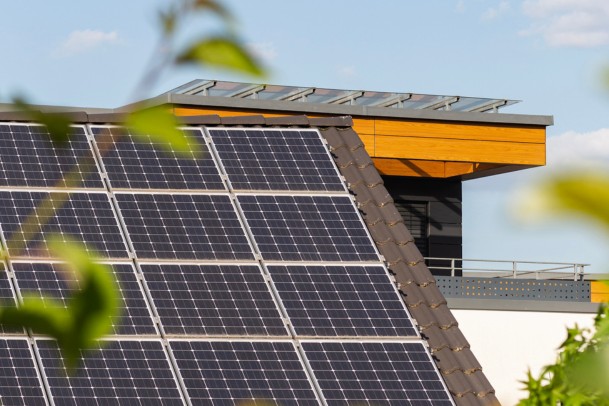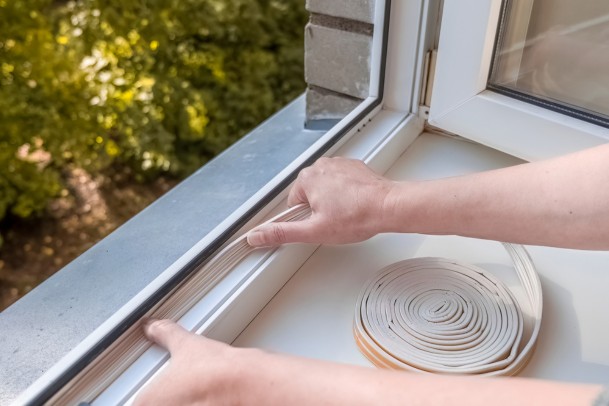
Written by Kayla Jane Barrie Updated on Nov 24, 2025 6 mins read

Are you an Ontario homeowner looking to save money on energy bills and reduce environmental impact? If so, you're in luck! The Ontario government offers a variety of energy efficiency programs designed to help homeowners like you make energy saving upgrades to your homes.
The province's $10.9 billion investment in expanding energy efficiency programs is projected to produce $23.1 billion in electricity system benefits. By 2036, these programs are expected to reduce peak demand by 3,000 MW, which is the same as removing three million homes from the grid.
In this blog post, we'll explore some of the key programs available in 2025, the benefits of making your home more energy efficient, and if they can help lower your home insurance in Ontario.
Energy efficient homes are not only more economical to run, but they also promote a healthier environment by lowering greenhouse gas emissions. By implementing energy-efficient upgrades, you can:
Energy-efficient upgrades can contribute to a lower risk profile, making your home safer and potentially more valuable. Having an energy efficient home is not a primary factor insurance companies consider when setting premiums. It's best to contact your insurance provider directly to inquire about any potential discounts related to home improvements.
Insurers are increasingly offering discounts on home insurance for homes equipped with sensor technology that alerts homeowners to leaks and potential hazards, thereby mitigating claims risks.
For instance, a water sensor detecting a leak in a basement laundry room can promptly notify the homeowner, enabling swift action to prevent flooding.
Expanding energy efficiency programs to help families save money is one way the government addresses Ontario’s rapidly increasing demand for electricity. The report, Ontario’s Affordable Energy Future: The Pressing Case for More Power, highlights the challenges the province faces as electricity demand continues to rise. It also outlines the government’s comprehensive strategy to meet this demand, which includes an all-of-the-above approach.
The Independent Electricity System Operator forecasts that electricity demand in Ontario will increase by 75 percent by 2050, equivalent to the needs of four and a half cities the size of Toronto. This rise is primarily driven by population growth, the construction of new manufacturing facilities, the adoption of advanced technologies such as AI data centres, industry electrification, and the expansion of electric vehicle charging infrastructure.
Here are some key energy efficiency programs available for Ontario homeowners in 2025 to assist in transitioning to energy efficient homes:
Starting your journey to enhance your home's energy efficiency and take advantage of Ontario's generous programs is simpler than you might realize. By following these steps, you can effectively manage the process, enjoy a more comfortable and sustainable home, and reduce your energy bills.

Here are some tips to help you maximize how much money you can save when you make a greener home:
Prioritize your upgrades:
Combine programs:
Keep your records organized:
Consult with qualified experts:
Energy efficiency programs are initiatives aimed at helping individuals, businesses, and communities reduce their energy consumption, lower utility costs, and minimize their environmental impact. These programs are typically operated by governments, utility companies, or private organizations and offer incentives, rebates, and resources to promote energy-saving practices.
Canada's new energy programs prioritize sustainability and clean energy. Key initiatives include the Canada Green Buildings Strategy for energy-efficient structures, Ontario’s Affordable Energy Act for long-term power security, and the Home Renovation Savings Program for energy-efficient upgrades. Ontario is also refurbishing its nuclear power stations.
Energy-efficient devices lower energy consumption and utility costs. Examples include LED light bulbs, smart thermostats, Energy Star-certified appliances, high-efficiency HVAC systems, heat pumps, and tankless water heaters. Smart power strips prevent standby power waste, while low-flow showerheads reduce hot water use. Additional examples like induction cooktops, solar water heaters, and programmable irrigation systems enhance efficiency.
Participating in these programs saves you money and supports a sustainable future for our province. Program details and availability may vary, so check official government sources for the latest information.
| Categories | Home |
|---|---|
| Tags | Protect Your HomeHome Maintenance |
Read our insurance blog to get helpful tips, information and news.
Big changes are coming to Ontario car insurance. Starting July 1, 2026, many accident benefits will become optional. Learn how these "à la carte" reforms impact your coverage and why opting out could be a major financial risk.
Learn about Canada's new Electric Vehicle Affordability Program (EVAP). Discover how the $50,000 transaction rule works, which cars qualify, and how to claim your rebate.
Fatal collisions in Canada rose 9.14% from 2019 to 2023. Discover the latest road safety statistics, provincial rankings, and how these trends affect your auto insurance rates.
Find out if a seatbelt ticket will raise your car insurance rates and how insurers view seatbelt violations.